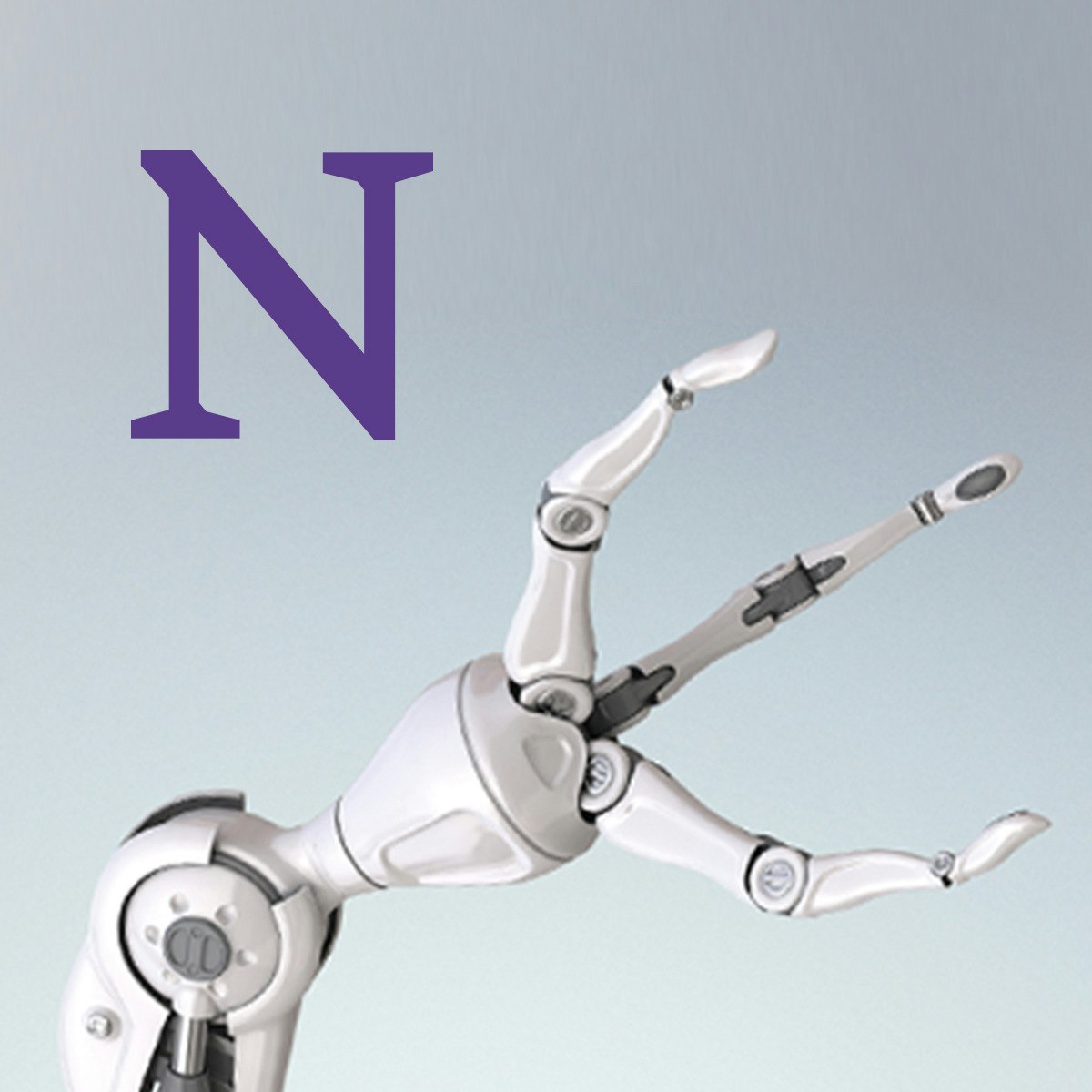
로봇이 어떻게 작동하는지 궁금하십니까? 로봇공학 분야의 직업에 관심이 있으십니까? 로봇공학의 모든 하위 분야에서 사용되는 기초적인 수학적 모델링 기법을 배우고 싶으신가요
그렇다면, ‘현대 로봇공학: 역학, 계획 및 제어(Modern Robotics: Mechanics, Planning, and Control)’ 전문 과정이 여러분께 도움을 드릴 수 있습니다.본 전문 과정은 여섯 개의 짧은 강의로 이루어져 있으며, 로봇공학 분야에서 일하기를 진지하게 고민하고 있거나 심화 연구를 수행하려는 학생들에게 적합합니다.단순한 기초 모음집이 아닙니다.
전문 과정의 3번째 강좌인 로봇 동역학에서는 정동역학(로봇의 구성, 속도, 관절 힘과 토크가 주어졌을 때 가속도 계산)과 역동역학(로봇의 구성, 속도, 가속도가 주어졌을 때 필요한 관절 힘과 토크 계산)을 위한 효율적인 수치 알고리즘을 배우게 되는데, 전자는 시뮬레이션에 유용하며, 후자는 로봇 제어에 사용됩니다. 동역학 제약에 따른 로봇 궤적 계획 방법에 대해서도 알아볼 것입니다.
Read more
로봇이 어떻게 작동하는지 궁금하십니까? 로봇공학 분야의 직업에 관심이 있으십니까? 로봇공학의 모든 하위 분야에서 사용되는 기초적인 수학적 모델링 기법을 배우고 싶으신가요
그렇다면, ‘현대 로봇공학: 역학, 계획 및 제어(Modern Robotics: Mechanics, Planning, and Control)’ 전문 과정이 여러분께 도움을 드릴 수 있습니다.본 전문 과정은 여섯 개의 짧은 강의로 이루어져 있으며, 로봇공학 분야에서 일하기를 진지하게 고민하고 있거나 심화 연구를 수행하려는 학생들에게 적합합니다.단순한 기초 모음집이 아닙니다.
전문 과정의 3번째 강좌인 로봇 동역학에서는 정동역학(로봇의 구성, 속도, 관절 힘과 토크가 주어졌을 때 가속도 계산)과 역동역학(로봇의 구성, 속도, 가속도가 주어졌을 때 필요한 관절 힘과 토크 계산)을 위한 효율적인 수치 알고리즘을 배우게 되는데, 전자는 시뮬레이션에 유용하며, 후자는 로봇 제어에 사용됩니다. 동역학 제약에 따른 로봇 궤적 계획 방법에 대해서도 알아볼 것입니다.
로봇이 어떻게 작동하는지 궁금하십니까? 로봇공학 분야의 직업에 관심이 있으십니까? 로봇공학의 모든 하위 분야에서 사용되는 기초적인 수학적 모델링 기법을 배우고 싶으신가요
그렇다면, ‘현대 로봇공학: 역학, 계획 및 제어(Modern Robotics: Mechanics, Planning, and Control)’ 전문 과정이 여러분께 도움을 드릴 수 있습니다.본 전문 과정은 여섯 개의 짧은 강의로 이루어져 있으며, 로봇공학 분야에서 일하기를 진지하게 고민하고 있거나 심화 연구를 수행하려는 학생들에게 적합합니다.단순한 기초 모음집이 아닙니다.
전문 과정의 3번째 강좌인 로봇 동역학에서는 정동역학(로봇의 구성, 속도, 관절 힘과 토크가 주어졌을 때 가속도 계산)과 역동역학(로봇의 구성, 속도, 가속도가 주어졌을 때 필요한 관절 힘과 토크 계산)을 위한 효율적인 수치 알고리즘을 배우게 되는데, 전자는 시뮬레이션에 유용하며, 후자는 로봇 제어에 사용됩니다. 동역학 제약에 따른 로봇 궤적 계획 방법에 대해서도 알아볼 것입니다.
본 강의는 Lynch and Park의 Mechanics, Planning, and Control’(Cambridge University Press 2017) 교재를 기반으로 제작되었습니다.교재는 구매하시거나 무료 pdf 견본을 사용하실 수 있습니다.여러분이 원하는 언어(파이썬, Mathematica, 및 MATLAB)를 선택하여 로봇공학 소프트웨어의 라이브러리를 구축하실 수 있습니다. 또한 무료 크로스 플랫폼 로봇 시뮬레이터 V-REP를 사용하여 집에서도 최첨단 로봇공학 작업을 손쉽게 무료로 수행할 수 있습니다.
What's inside
Syllabus
챕터 8: 개방형 체인의 동역학(파트 1/2)
동역학의 라그랑주 공식, 구심 및 코리올리 힘, 로봇 질량 행렬, 강체의 동역학, 그리고 개방형 로봇에 대한 뉴턴-오일러 역동역학
챕터 8: 개방형 체인의 동역학(파트 2/2)
개방형 체인의 정동역학, 작업 영역 동역학, 제약이 있는 동역학, 그리고 기어링 및 마찰에 따른 실질적인 영향.
Read more
Syllabus
Good to know
Save this course
Activities
암기, 정리, 복습
Show steps
수업에서 배운 노트, 과제, 퀴즈, 시험을 정리하고 보충하여 학습을 공고히 합니다.
Show steps
-
수업 노트 복습
-
과제 및 퀴즈 검토
-
시험 문제 풀이
Review Lagrange mechanics
Show steps
Review the fundamental principles of Lagrange mechanics to strengthen your grasp of robot dynamics.
Browse courses on
Classical Mechanics
Show steps
-
Revisit the concepts of generalized coordinates and velocities.
-
Practice deriving Lagrange's equations for simple mechanical systems.
-
Solve practice problems involving the application of Lagrange's equations to determine the equations of motion.
스터디 그룹 참여
Show steps
작은 그룹에서 다른 학생들과 함께 문제를 공유하고 토론하며 강의 내용의 이해도를 높일 수 있습니다.
Show steps
-
스터디 그룹에 가입 또는 구성
-
주기적인 회의 일정 잡기
-
미리 문제나 주제 준비하기
-
회의 중에 협력하고 토론하며 의견 공유하기
Show all three activities
암기, 정리, 복습
Show steps
수업에서 배운 노트, 과제, 퀴즈, 시험을 정리하고 보충하여 학습을 공고히 합니다.
Show steps
- 수업 노트 복습
- 과제 및 퀴즈 검토
- 시험 문제 풀이
Review Lagrange mechanics
Show steps
Review the fundamental principles of Lagrange mechanics to strengthen your grasp of robot dynamics.
Browse courses on
Classical Mechanics
Show steps
- Revisit the concepts of generalized coordinates and velocities.
- Practice deriving Lagrange's equations for simple mechanical systems.
- Solve practice problems involving the application of Lagrange's equations to determine the equations of motion.
스터디 그룹 참여
Show steps
작은 그룹에서 다른 학생들과 함께 문제를 공유하고 토론하며 강의 내용의 이해도를 높일 수 있습니다.
Show steps
- 스터디 그룹에 가입 또는 구성
- 주기적인 회의 일정 잡기
- 미리 문제나 주제 준비하기
- 회의 중에 협력하고 토론하며 의견 공유하기
Career center
Mechatronics Engineer
Biomedical Engineer
Robotics Engineer
Automotive Engineer
Aerospace Engineer
Mechanical Engineer
Manufacturing Engineer
Materials Scientist
Systems Engineer
Electrical Engineer
Computer Engineer
Software Engineer
Data Scientist
Operations Research Analyst
Financial Analyst
Reading list
Share
Similar courses
OpenCourser helps millions of learners each year. People visit us to learn workspace skills, ace their exams, and nurture their curiosity.
Our extensive catalog contains over 50,000 courses and twice as many books. Browse by search, by topic, or even by career interests. We'll match you to the right resources quickly.
Find this site helpful? Tell a friend about us.
We're supported by our community of learners. When you purchase or subscribe to courses and programs or purchase books, we may earn a commission from our partners.
Your purchases help us maintain our catalog and keep our servers humming without ads.
Thank you for supporting OpenCourser.



